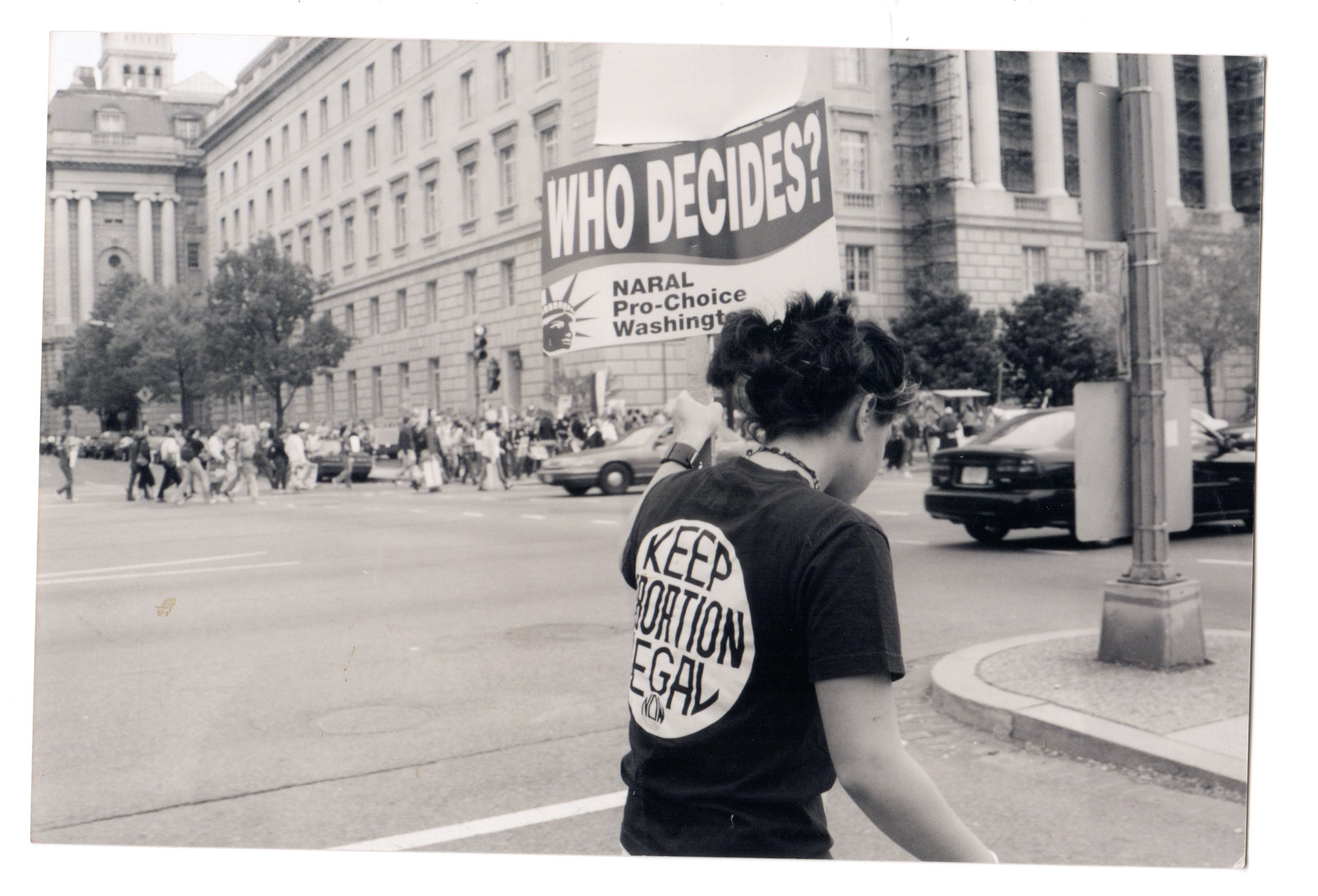ARTS PROTECT DEMOCRACY

Christina Shimuzu at the March for Women’s Lives, 2004. Photo courtesy of Christina Shimizu
Wing Luke Museum denounces the Supreme Court’s ruling to overturn Roe v. Wade and stands with civil rights and QTBIPOC organizations around the country in support of abortion and reproductive rights.
At a time when cultural knowledge and artifacts are under threat of erasure, in a nation where books are banned and education curriculums are distorted to reflect a revisionist history, a unified stance in defense of our Democracy has never been more critical.
Friday, June 24th, 2022, brings disheartening news with the Supreme Court’s decision to overturn Roe v. Wade, a landmark ruling guaranteeing federal protection of abortion rights in America. This decision, long-anticipated by civil rights and QTBIPOC organizations across the country, is profoundly distressing.
The American Civil Liberties Union (ACLU) asserts that the ruling will have a devastating impact on the lives of millions, “particularly people of color, those with fewer economic resources, young people, and undocumented immigrants.”
The National Asian Pacific American Women’s Forum included a chilling statistic in their public condemnation of the ruling, “As the country’s fastest-growing racial and ethnic group, a third of Asian Americans and Pacific Islanders now live in one of the 26 states where abortion access has vanished.”
While this decision affects all people living in the United States this decision carries disproportionate harm to people of color, specifically Black women, who experience the highest rates of maternal mortality, the most severe occurring in states expected to implement bans.
Despite a statement from Justice Samuel Alito assuring that this decision has no implications on the status of other rights, the ruling on Roe v. Wade casts uncertainty on the future of other federally protected rights including marriage equality, protections and rights for undocumented Immigrants, voting rights, disability justice, protections for LGBTQ+ people, and other major rulings under the Fourteenth Amendment.
Defense of democracy demands unified and intersectional criticism of legislation intended to dismantle the rights of all marginalized peoples.
